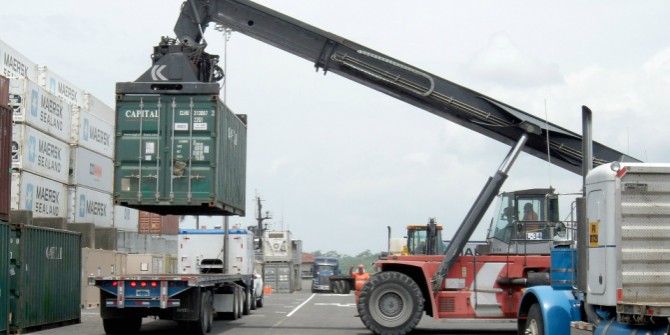
The last few decades have seen an unprecedented increase in the number of organisations supporting innovative ventures. These business accelerators seek to identify and boost high-potential startups that can rapidly scale up to become national or global leaders.
Although the importance of high-potential startups—also known as “gazelles”—for economic development is well-known, the evidence regarding the impacts that support organisations have on them is sparse. Can these organisations accelerate the growth of high-potential entrepreneurs? Or, are there systematic conditions in developing economies that prevent high-growth entrepreneurship, which these programs cannot resolve?
Our evidence from Gonzalez-Uribe and Reyes (2020) shows that the growth of innovative ventures in developing countries is restricted by access to entrepreneurial capital, and that support programs, such as business accelerators, can be cost-effective policy tools to accelerate the growth of gazelles. However, acceleration is not effective for all types of ventures. Participation helps to accelerate innovative ventures, but does not necessarily transform average projects into gazelles.
In this video we summarise the main lessons from our research for policy makers, the managers of business accelerators, and for entrepreneurs in developing countries.
For the version in Spanish click here.
♣♣♣
Notes:
- This blog post is based on Identifying and boosting “Gazelles”: Evidence from business accelerators, Journal of Financial Economics, in press, also available here.
- The post expresses the views of its author(s), not the position of LSE Business Review or the London School of Economics.
- Featured image via Pikrepo, Royalty free
- When you leave a comment, you’re agreeing to our Comment Policy
 Juanita González-Uribe is an assistant professor at LSE. She holds a PhD in finance and economics from Columbia University. Her research focuses on entrepreneurship, private equity, innovation and policy. Her work has been published in prestigious journals, and has won several prizes, including the Jaime Fernandez de Araoz Award (JFA, 2017).
Juanita González-Uribe is an assistant professor at LSE. She holds a PhD in finance and economics from Columbia University. Her research focuses on entrepreneurship, private equity, innovation and policy. Her work has been published in prestigious journals, and has won several prizes, including the Jaime Fernandez de Araoz Award (JFA, 2017).
 Santiago Reyes is a consultant in the World Bank at the unit of firms, entrepreneurship and innovation. He has a Master’s in public policy from the University of Chicago and an MA in economics from Universidad de los Andes (Colombia). Santiago has 10 years of experience in the design, implementation, and evaluation of productive policies working with national and local governments in Latin America, and for organisations such as Innovations for Poverty Action.
Santiago Reyes is a consultant in the World Bank at the unit of firms, entrepreneurship and innovation. He has a Master’s in public policy from the University of Chicago and an MA in economics from Universidad de los Andes (Colombia). Santiago has 10 years of experience in the design, implementation, and evaluation of productive policies working with national and local governments in Latin America, and for organisations such as Innovations for Poverty Action.





